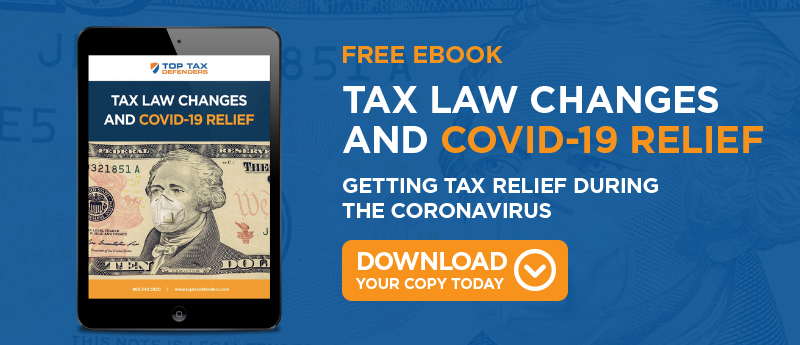
Have you ever received a Dishonored Payment Notice from the IRS and wondered how Klingons got involved? Or maybe you worried you would need to sacrifice yourself in shame. Oh, no! My payment was dishonored. I must (fill in the blank with something terrible).
Don’t get the sword out yet. Dishonored payment just means the check you cut the IRS bounced. You didn’t have enough money in your bank account to cover the payment you made on your tax debt. The bank then “dishonors” your payment and returns the bad check or electronic payment, declaring it unpaid.
Follow the Bouncing Check
What if your check bounced or you didn’t have enough money to cover an electronic payment? You will get a a Letter 608C from the IRS.
The letter says that your payment was dishonored and was returned from the financial institution as unpaid. Unlike some other entities, the IRS will not resubmit the check for payment. It just sits there, letting penalties and interest build up on your tax liability while you wait for the US Postal Service to deliver missives from the IRS.
There is a chance that a clearinghouse handles the returned check and resubmits it, but the IRS won't know that. They will just send you a letter and let you find out what happened. In the meantime, your check might get to the bank and find there are sufficient funds after all. At least then, you aren't charged a Dishonored Payment penalty.
All this to say that it’s up to you to monitor your tax payment and make sure you always have sufficient funds in the bank.
Calculating the Dishonored Payment Penalty
The Dishonored Payment penalty is 2% of the amount of your check or commercial payment instrument, and the IRS charges you when your payment doesn't clear the bank. If your payment was less than $1,250, the penalty is $25 or the amount of the check, whichever is smaller.
Since your payment is now late, the IRS charges late payment penalties, and your tax liability accrues interest until you pay it off.
Sometimes, the IRS can remove or abate the Dishonored Payment penalty. You can request the agency to do so by submitting an explanation or evidence that you reasonably expected the payment would be honored.
Make the request in writing and only after you receive the Letter 608C notifying you of a penalty assessment.
A Dishonored Payment penalty is not assessed on a check with a Stop Payment order. If the IRS charges you the penalty, send a copy of the stop payment order along with your penalty relief request.
Disputing the Penalty
If you believe the dishonored payment notification is in error, you can dispute it by sending the IRS a letter explaining why you shouldn’t be hit with a penalty. Include payment along with the letter and send information stating that you received a notice or letter from the IRS, specifying the penalty you want reconsidered, and explain why you want it removed.
If you have more than one Dishonored Payment penalty, you need to submit an explanation for each one.
Include documents from the bank, like a bank statement or letter showing that you had sufficient funds when you made payment and had reason to believe it would be available when the IRS processed your check.
Sign, date, and mail the statement and documents to the address on your 608C notice.
Other Things You Can Do
If you cannot pay your tax liability in full on the due date, apply for an extension or a payment plan.
An extension gives you six more months to file and pay your taxes. A payment plan lets you split your payments into monthly amounts for you to pay off. You won't get a penalty if you honor the payment plan terms. You will still accrue interest—no way around that.
Don’t apply for a payment plan if any of the following is true:
- You are not current with this year's tax return filing
- Your living expenses are not all considered necessary
- The information you provided on Form 433-A, Collection of Information Statement, is incomplete or untruthful
- You defaulted on a prior payment or installment plan
If these are true, you have bigger problems than a dishonored payment.
IRS payment plans come in short-term and long-term installments. You actually have a lot of flexibility. A short-term payment plan can get your debt paid off in 120 to 180 days via automatic withdrawals from your checking account, check, money order, or debit or credit card.
Long-term payment plans offer you more than 120 days, but the IRS requires automatic withdrawal from your bank account. Also, you must pay $31 to file online or $107 to apply by phone, email, or in person unless the IRS designates you as a low-income taxpayer.
When you apply for a payment plan, have a good idea of what you can afford to pay each month. If you underpay even a single payment, your tax debt comes due in full, including interest and penalties. The IRS does not understand nonpayment or reduced payments it hasn't authorized.
Offers in Compromise
If you are short of funds, go ahead and file your tax return on time (or file for an extension). Then work with your tax professional to negotiate an offer in compromise, so you aren't required to pay the entire amount.
This is not an easy way out. The IRS accepts only a small percentage of offers each year. However, you can relieve the stress of a huge tax bill if you are eligible.
See? No Need to Panic
A dishonored payment sounds ominous and vaguely Victorian, but it is just a fancy way of saying, “Hey, your check bounced.”
If you receive a letter telling you about a dishonored payment, straighten things out as soon as possible. If you don’t know where to start, contact Top Tax Defenders to help you restore your honor.




